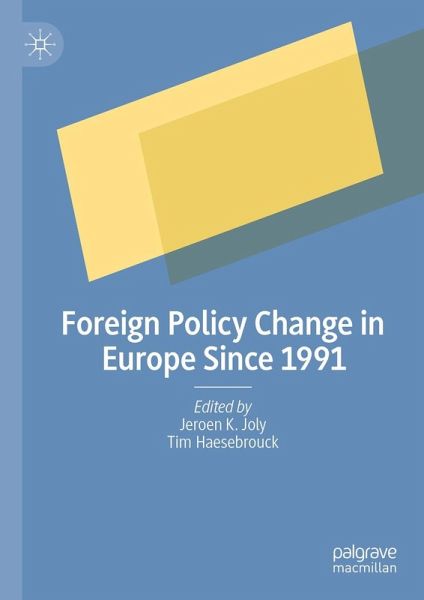
Foreign Policy Change in Europe Since 1991 (eBook, PDF)
Versandkostenfrei!
Sofort per Download lieferbar
120,95 €
inkl. MwSt.
Weitere Ausgaben:

PAYBACK Punkte
60 °P sammeln!
In the past three decades, the world has witnessed many rapid and invasive changes, and seems to be changing countries have adapted their foreign policies to these changes. Building on a clear typology of foreign policy change and a consistent theoretical framework, this book offers a comparative analysis of foreign policy change in Europe throughout the post-Cold War period. Along the lines of our analytical framework, country experts discuss how and why the further ever more rapidly in ways that seemed only imaginable in movies. This book investigates how European foreign policies of eleven ...
In the past three decades, the world has witnessed many rapid and invasive changes, and seems to be changing countries have adapted their foreign policies to these changes. Building on a clear typology of foreign policy change and a consistent theoretical framework, this book offers a comparative analysis of foreign policy change in Europe throughout the post-Cold War period. Along the lines of our analytical framework, country experts discuss how and why the further ever more rapidly in ways that seemed only imaginable in movies. This book investigates how European foreign policies of eleven European countries have changed over the past thirty years. This book hereby advances our understanding of the phenomenon of foreign policy change and identifies the most important drivers and inhibitors of change.
Dieser Download kann aus rechtlichen Gründen nur mit Rechnungsadresse in A, B, BG, CY, CZ, D, DK, EW, E, FIN, F, GR, HR, H, IRL, I, LT, L, LR, M, NL, PL, P, R, S, SLO, SK ausgeliefert werden.












